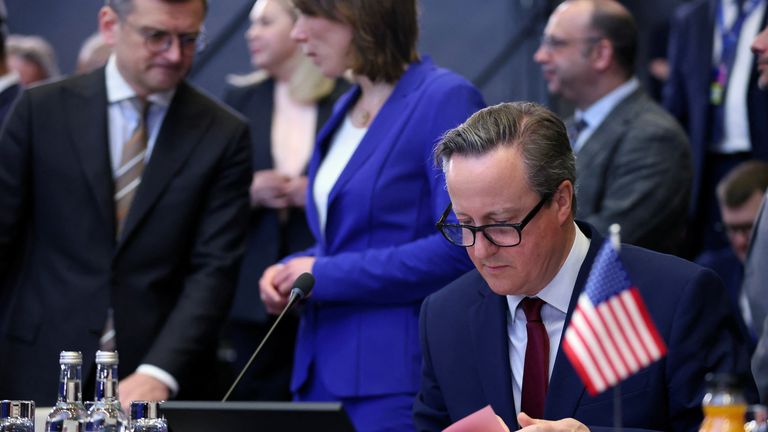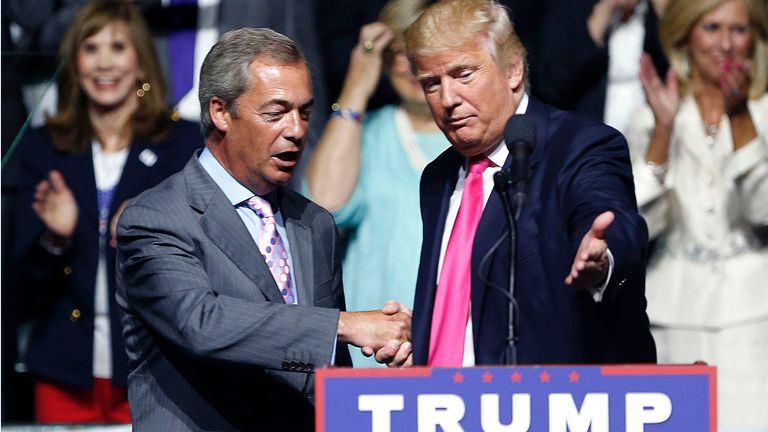Why Cameron’s meeting with Trump wasn’t just about Ukraine

[ad_1]
Oh to have been a fly on the wall of David Cameron’s meeting with Donald Trump.
Ostensibly, Ukraine was the driver for the dinner at Mar-a-Lago: Cameron wants to unblock the jam on Capitol Hill over Ukraine funding; Donald Trump has the key, such is his power.
Politics latest: Trump reveals details of meeting with Cameron
And the headlines, of course, are about the awkwardness of the visit given Mr Cameron’s choice words for the former president in the past few years.
But this fly-by to Florida by the Foreign Secretary, en-route to Washington DC, was actually about something else too.
It reflected an effort by the British government to cement the best contacts possible with Team Trump.
In 2016, when Donald Trump first won the presidency, the British government had put all its diplomatic eggs in the Clinton basket.
Like many, Downing Street did not expect a Trump victory. And when it came, the contact book was pretty empty.
David Cameron is probably Britain’s most experienced serving politician and, as Foreign Secretary, the UK’s top diplomat.
The meeting was a chance to get a first-hand, one-on-one sense of what Trump 2.0 could look like.
The meeting was, a source tells me, “warm and productive”. The two spoke, I’m told, about wide range of topics and discussed the breadth and strength of UK-US relations.
Read more:
Cameron’s words may have haunted him with Trump visit
America’s ‘scariest’ bridge – could disaster strike again?
Team Trump does in fact have good connections with conservative Britain, but not the part currently in government.
Trump and Nigel Farage are close, as demonstrated by the effusive birthday video message from Donald to Nigel at his 60th last week.
There are ties between Trump and Liz Truss too.
The behind-the-scenes British diplomats who advise the government recognise the importance of connecting with Trump.
He’s a man who’s no longer a novice. He likes to keep people off balance. Better to find your feet now.
Foreign diplomats in Washington tend to sit between two camps.
There are the existentialists – those who think Trump 2.0 could be a very rough ride indeed, and the pragmatists – those who see his successes in office (the Abraham Accords, getting NATO nations to pay more into the pot, keeping despots on their toes) and believe he isn’t the character to burn the house down.
The Cameron visit to see Mr Trump suggests where Britain now sits. Pragmatic diplomacy over panic.
Trump kicked Britain’s last ambassador to Washington, Sir Kim Darroch, out after blunt diplomatic cables about the former president were leaked.
The British diplomatic machine, which doesn’t change even if the British government does, wants to be in the best position it can be for Trump 2.0 should it come.
[ad_2]


